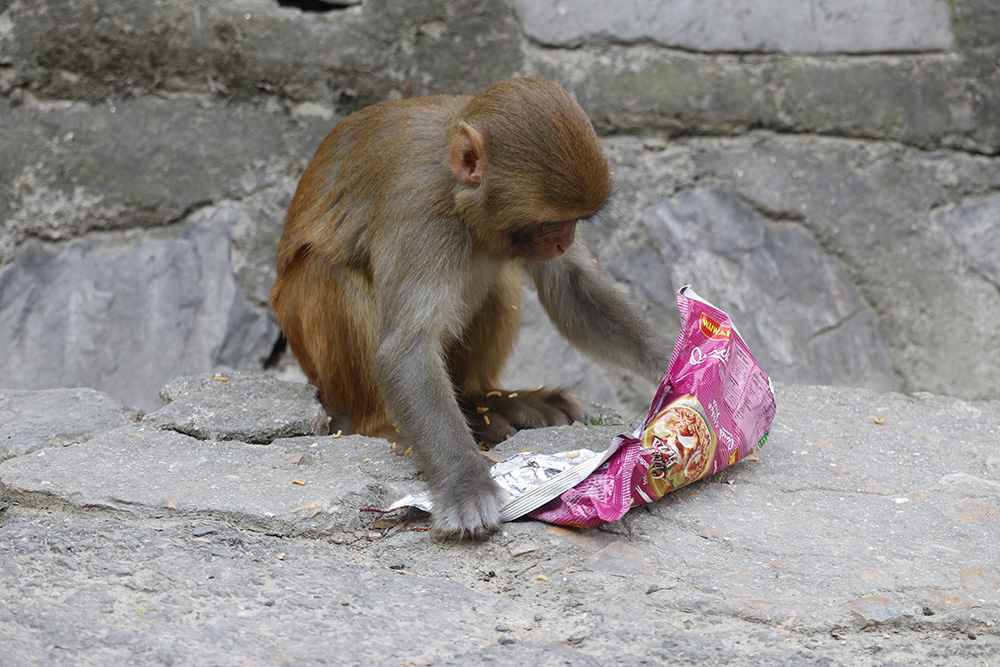In villages where there’s no electricity, people are more in touch with the earth’s diurnal pulse. Work starts at dawn and many tasks are done by dusk. Then there’s that quiet family time of winding down, eating together and chatting about the day. It feels like that village rhythm persists in the urban life of the Kathmandu Valley still. Cockerels are noisy before dawn but soon humans are busy too. Neighbours – or probably more accurately neighbours’ helpers – are up preparing food, washing clothes and bent double sweep-sweeping the dust from terraces that has accumulated over that last 24h. And two men are up on a flat roof opposite spreading out on a big plastic sheet the seeds of a crop that looks like millet – just the kind of scene that will be repeated all over Nepal at this time of the year, as rice and other harvests are being brought in.
Around 6am each morning, a downtrodden individual blows his whistle – loudly and repeatedly – to get people to bring out rubbish that he’ll take away on a modified tricycle. There will be more melodious bell-ringing from neighbours at their morning prayers. Then various traders start to turn up. The most energetic shouts
golbera-simi-brinjal-mutter-kakro-cauli-aalooooo (tomato-beans-aubergine-peas-cucumber-cauliflower-potatooooooes). Another announces
saag ayooooh (spinach has arriiiiiived). Then there is the twang-twangy sound of the cotton fluffer. Unspun cotton is used a great deal here for mattresses, as filler for quilts and also for cushions and pillows but with time it compacts and becomes hard. So the cotton-fluffer unpicks and unpacks the mattress/quilt/cushion and reinvigorates it using an instrument that looks a bit like a single-stringed harp.
Other traders come by. One utters a low monosyllable, apparently collecting old sacks. Another appeals for pieces of cardboard and clean newspapers. Yet another shouts
kali sisi bottol (empty glass bottles): there is a healthy recycling industry in the Siamese-twin-cities of Kathmandu and Patan. A man, a tinker, I believe, rattles pieces of aluminium.
Everyone’s clocks run earlier than we are used to in the UK including builders and workmen. There is a huge amount of building and rebuilding happening locally. Some is reconstruction of individual homes (and temples) shaken to bits in the earthquakes; some are new builds. The dust of industry is everywhere.
Nepal feels economically stronger than it was when we last lived here, and friends say that there are more opportunities for employment these days. Perhaps soon some of the many Nepalis forced to move abroad for work will be able to come home.
Meanwhile those who are here are looking forward to the festival known locally as Tihar, and which Indians call Diwali – the Festival of Lights. Today is kaag puja, when crows are honoured and people put rich food out for them. Our immediate neighbours have added a single African marigold to their offering. Tomorrow – for once – dogs won’t be chased away but will be fed and adorned with vermillion tikkas and marigold garlands. It’ll be interesting to see how the office dog takes to this treatment.
 |
| a young rhesus monkey looking for titbits in a discarded junk food packet |